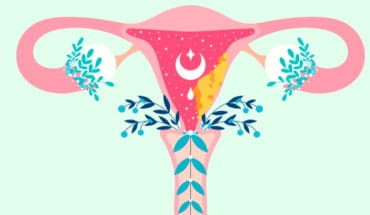There have been a lot of claims pertaining to digestive enzymes recently, that they can do everything from curing depression to helping you lose weight. Behind all of these claims, I believe, is a growing realisation that what we eat affects not just our bodies, but our minds and moods as well. But what happens if your digestive system isn’t breaking healthy food down effectively?
Since your body runs on vital nutrients, an inability to break down food effectively can affect your whole body in lots of ways. However, there are some common symptoms you may notice if your digestion is compromised:
- Symptoms similar to irritable bowel syndrome
- Diarrhoea or constipation
- Feeling bloated for days at a time
- Chronic flatulence
- Abdominal pain or discomfort
- Undigested food in the stools
- Steatorrhea (stools that float)
- Feeling full after only a few mouthfuls
- Food allergies and intolerances
What have enzymes got to do with it?
Enzymes are the body’s way of breaking down food into the nutrients it needs to function. At each stage of digestion – from your mouth to your large intestine – different enzymes are released that help break down different nutrients. Lingual lipase, for example, begins to break down fats in the mouth, with gastric lipase taking over the task in the stomach, and so on.
If any part of that digestive journey is lacking in the right enzymes, your food won’t be broken down properly and you’ll start to get a heavy, bloating feeling in your stomach.
Why don’t you have enough enzymes?
There are loads of potential causes. Some common ones include:
- Low stomach acid – Stomach acid is needed to break down food, kill pathogens, and to activate certain enzymes. Medications that reduce stomach acid are some of the most prescribed in the UK – being used to treat almost any acute digestive issues like heartburn or indigestion.
- Chronic stress – When anxious or stressed the body gets ready to protect itself by moving the blood supply away from your digestive areas to your limbs, getting you ready to fight or run (the fight-or-flight response). If you are chronically stressed your body never gets back into the relaxed (rest-and-digest) mode necessary for digestion.
- Ageing – The amount of digestive enzymes reduces as you get older. It’s not entirely clear whether this is completely natural or whether it’s the build-up of other issues, like long-term stress.
- Low-grade digestive tract inflammation – Often caused by infections, food sensitivities, certain foods like coffee, sugar and highly-processed foods, or a disruption to the organisms living in the intestine.
Supplements
One of the quickest and easiest ways to fix enzyme deficiency is by taking enzyme supplements. These usually come in tablet form, to be swallowed or chewed around 30 minutes before eating.
There are three key sources of enzymes used in supplements. However, not all enzyme sources are equal.
Pineapple and Papaya – Both sources contain enzymes that help break down protein. They’re vegan and, if you eat the fruit, contain other nutrients such as fibre and vitamins. But these enzymes can find it difficult to make it through the harsh stomach acid intact and only help break down protein.
Animal Sources – While not vegan or veggie-friendly, these sources do contain the enzymes needed to break down proteins, fats and carbohydrates in the small intestine. Unfortunately, enzymes from these sources are unstable which limits their effectiveness.
Microbial Sources – These enzyme supplements are vegan and veggie-friendly and contain all the key enzymes needed to break down foods. The added benefit of these enzymes is that they can help to break down plant-based foods as well. They are also very stable.
If you are moving to a more plant-based diet or hoping to lose weight through healthy eating, then microbial sources of enzymes are especially useful. They also complement the enzymes produced naturally in the pancreas, rather than ‘overriding’ the natural system.
Ultimately, the hope is you can move away from supplements once your digestive enzymes are back in balance, so it’s better to take supplements that support your natural processes than take over these processes and potentially weaken your natural enzyme production.
What else can you do?
There are other things you can do to support the natural rebalancing process:
- Cut down or eliminate foods that might be causing gut inflammation from your diet.
- Make sure you are drinking enough water (at least 1.5-2 litres a day).
- Take time to eat your food by chewing more slowly and spending some time relaxing after you’ve eaten.
- Digestive enzymes and health - 21st November 2018







